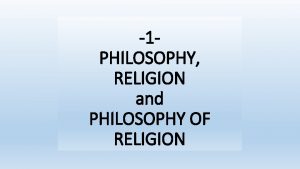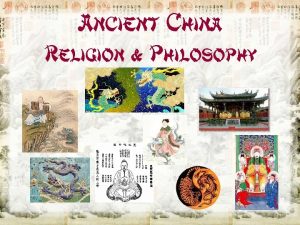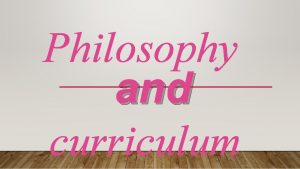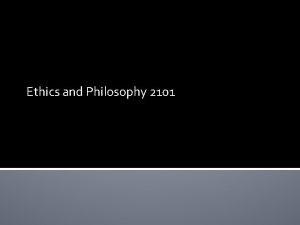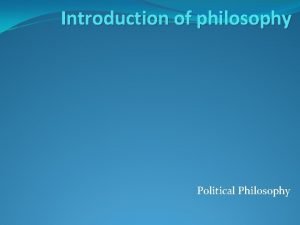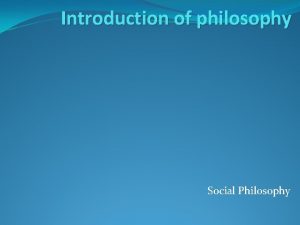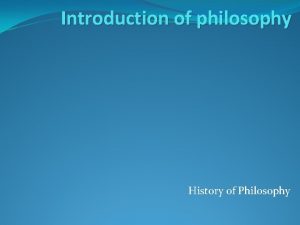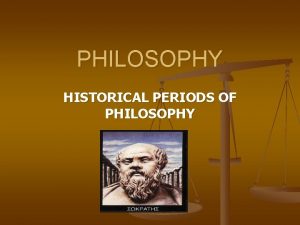Chapter 1 Religion and the philosophy of religion










- Slides: 10

Chapter 1: Religion and the philosophy of religion

Defining religion “A religion involves a system of beliefs and practices primarily centered around a transcendent Reality, either personal or impersonal, which provides ultimate meaning and purpose to life. ”(p. 6)

Religion and the world religions

Limiting the scope of study Ø Monotheistic traditions ØJudaism ØChristianity ØIslam Ø Other major traditions ØHinduism ØBuddhism

The philosophy of religion Key terms dealing with scope • Philosophical reflection – “The careful analysis of words, reasons and evidences for claims, hypotheses and arguments. ” (p. 8) • Religious ideas – “The primary issues and concepts which have been discussed and debated within religious traditions throughout the centuries. ” (p. 9)

Historical periods ØAncient ØMedieval ØModern ØContemporary (see timeline on pages 10 -14)

Religious beliefs and practices Realism and non-realism

Realism (with regard to religion) is the idea that religious beliefs are about what really exists, independent of the human beings who affirm those beliefs. (p. 15) The vast majority of religious adherents are religious realists.

Non-realism is the idea that religious claims are not about realities which transcend human language, concepts, and social forms. (p. 15) Some influential non-realists include: Don Cupitt, Sigmund Freud, Richard Dawkins, Daniel Dennett, and Ludwig Wittgenstein.

Questions for discussion How would you define “religion”? Does your definition include all and only what are generally taken to be the religions? Do you think it is possible to understand assess a religion without actually being a believing member of the religion? Of any religion? What are some ways of attempting such understanding and assessment? How might the positions of realism and non-realism affect the way one thinks about the following issues: human rights, religious tolerance, global responsibility?











